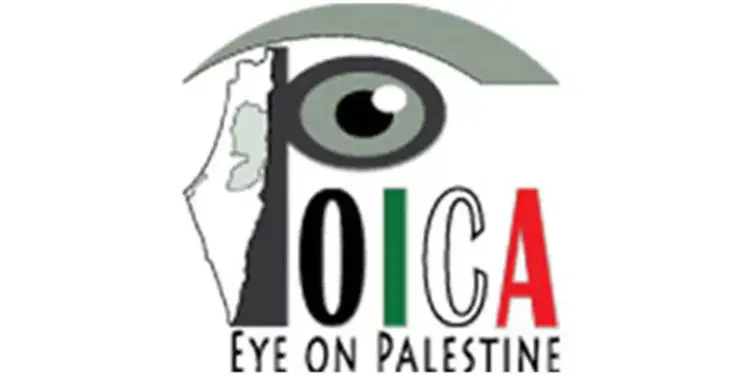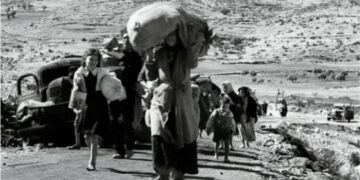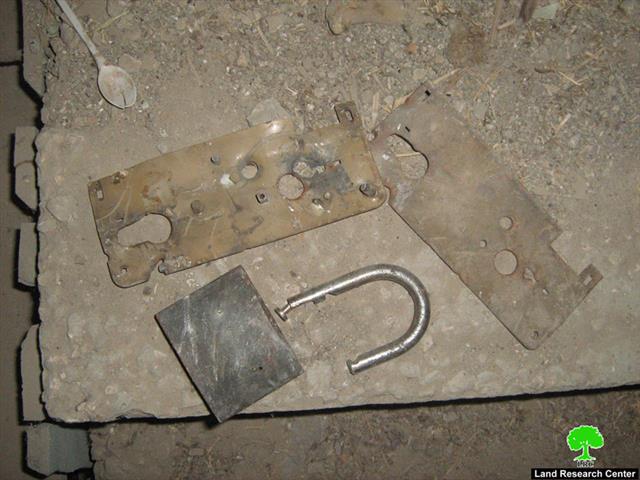Hamas�s ascent to power after the 2006 parliamentary elections in the Palestinian Authority (PA) yielded a shared policy among the major donors in the international community: vital sources of aid to the Palestinian Authority such as the United States, European Union, and Canada would no longer provide direct aid to the PA. These former contributors suspended what had previously been an aid package to the Palestinian government of roughly $1 billion a year in humanitarian, developmental and budgetary support. This policy surfaced on the heels of an Israeli decision to withhold monthly transfers of about $55 million in customs and tax revenues that it collects on behalf of the PA. The government of Israel, along with international donors, attempted to justify the decision to boycott by maintaining that until Hamas recognizes Israel, renounces violence, and agrees to pursue previous political agreements, the boycotts will continue. The objective is to pressure Hamas to dramatically shift its platform.
While the boycotting tactics have purportedly been aimed at Hamas, the Palestinian people ultimately bear the burden of sanctions. Immense suffering has resulted from the removal of aid to the PA, and a humanitarian crisis has quickly materialized. According to Oxfam, �the number of Palestinian people living in poverty has jumped by 30 percent, essential services are facing meltdown, and previously unknown levels of factional violence plague Palestinian streets� only one year after the sanctions were implemented. What has emerged is a climate of desperation, an understandable resentment of the occupying power which has a duty to ensure the welfare of the Palestinian people. The boycott fuels bitterness and antipathy towards Israel and the international community, thus exacerbating the conflict. Coupled with the rising desperation and inability to feed one�s family, Palestinians employ any means they can to combat the oppressive conditions. Some resort to violence, which brings Israel and former international donors a sense of justification in their actions. The upshot is a seemingly never-ending downward spiral: harsh sanctions breed violence, which breeds harsher sanctions, and the cycle continues.
But the violence the former donors point to as validation for severe restrictions is a poignant reminder of the complete misunderstanding of situation at hand. The cycle of violence can only stop when Israel and the international community realize that this method of boycotting is counterproductive to peace. Aid alone will not bring the stability that is needed for a lasting peace, but we can be sure that by not providing the essential assistance needed to improve the lives of the Palestinian people, the situation will worsen. Some international donors such as Norway, Russia and France have recognized that the environment created by the boycotts is one in which lasting peace remains impossible. They have resumed aid to the PA, and should call for other international donors to follow suit. In order to avoid implementing destructive sanctions again, they must also acknowledge the fact that boycotts that punish the people rather than the government simply aggravate previously existing hostilities and stand contrary to their stated aims of peace.
The extent to which the humanitarian crisis has affected so many Palestinians in such a short time is staggering. A UN report from 2006 holds that 46 percent of Palestinians do not have the adequate amount of food that is required for their basic needs to be met. According to the United Nations Relief and Works Agency, the number of individuals living in deep poverty on fewer than 50 cents a day has doubled to over 1 million in just the first year after the boycotts were implemented. �Consumption has therefore slumped as well, with the purchase food down by 8 per cent and non-food products down by 13 per cent.� This crisis in the Palestinian territories is having an exceptionally large effect on the refugees, who now find it difficult to find jobs and must turn to labor in the public sector. Palestinian families are forced to sell their possessions, limit their food intake and health coverage, and pull their children out of school to minimize the suffering that the boycott has inflicted upon them. An Oxfam survey of 677 household heads across the West Bank and Gaza, conducted in mid-March 2007, 87 per cent of people interviewed in Gaza and 81 per cent in the West Bank said that their household income had been reduced. In Gaza, 53 per cent said that their household income had fallen by more than a half, and 21 per cent said their household income had stopped altogether.
Medicine used to be provided by the PA, but is now too expensive for the average Palestinian family. Gas prices have also reached unaffordable heights. Without a salary, former professionals cannot even afford to travel to work and perform vital tasks for the community in the health, education and water sectors. This problem is amplified by the increasing amount of Israeli placed roadblocks, checkpoints, and other barriers that limit mobility within the Palestinian territories. The magnitude of the economic crisis is such that Palestinian police forces cannot even find the funds to amass a task force to address domestic violence and prevent crime. Thus, factional violence has gripped the Palestinian community and intensified the devastating effects of the boycott. At the current rate, the Occupied Palestinian Territories is at risk to become a failed state, inhibiting any chance of achieving a peace solution. By 2008, The World Bank predicts the â��GDP per capita income – which has already declined by 30 percent during the past five years – to decrease by 5 percent; unemployment and poverty will increase by 11 and 7 percentage points respectively, reaching 34 percent of the workforce and 51 percent of the population.â��
Efforts have been made, however to alleviate the humanitarian crisis. Three months after the boycott, the European Union established the Temporary International Mechanism (TIM) as a way to get resources directly to the Palestinian people. The TIM�s bypassed the Palestinian Authority, providing needs-based assistance to the Palestinians without channeling it through the government that the donors were boycotting. It was meant to be a transparent operation, with no ambiguity as to where the money was going. Resources were provided to hospitals and the water system, social allowances were granted to workers without salaries, and food aid was given directly to the people. While this temporarily averted a complete humanitarian disaster by providing provisional assistance to the poorest of the Palestinians, the situation in the Palestinian territories is still rapidly declining. An Oxfam survey in 2007 reported that only 10 percent of Palestinians thought that their daily living needs were met by the Temporary International Mechanisms. It appears that the TIM�s are simply not enough.
Furthermore, the aid that the TIM�s provide is not sustainable aid. There are no mechanisms set in place to ensure that needs are met beyond the next handout, nor do the TIM�s establish any system which enables the Palestinian people to provide for themselves. Without channeling money directly through the government, there is also the impending danger that the public finance systems in Palestine will collapse. Much of what the Palestinian Authority had worked for in terms of providing for their people has been compromised by the suspension of aid. The truth is that the PA remains the most effective way of delivering essential services to the Palestinian people. The PA is �responsible for 1,600 schools, 22 hospitals, and 416 primary health clinics, and for the provision of welfare payments to nearly a quarter of a million people.� Without these sustainable systems that the PA has put in place, there is little hope for a decline in the poverty that has stricken the Palestinian territories. Thus, it is clear why bypassing the PA to provide aid has worsened the humanitarian situation. When the Israeli government withholds tax and customs revenues of at least $475 million from the Palestinian people, unsustainable forms of aid cannot compensate for this loss of income. Donors have found that they cannot offer developmental aid without working through the PA. Finally, without a concrete governmental system through which to direct the money and resources, the aid becomes fragmented and unaccounted for. Apart from this framework, assistance cannot be targeted to those who need it most, and long term development to combat the rising poverty remains highly improbable.
The most significant consequence to the suspension of aid to the PA, however, is the growing security risk that is posed by a continued humanitarian crisis. Fatah led institutions have been granted aid by Western donors, escalating tensions and hostilities between Hamas and Fatah. Factional violence has increased dramatically. The heightened sense of desperation has also had negative consequences on the 80,000 armed Palestinian security workers who have �resorted to violence to demand their salaries. In May 2006, UN OCHA reported 64 separate attacks on public institutions by security workers, including the storming of buildings.� Couple this with the movement restrictions of the Israeli government on the Palestinian people, and it is obvious why leaving Palestinian people without sustainable aid and without the ability to travel to and from work has worsened the peace process rather than strengthened it.
The former international donors to the Palestinian Authority provide aid conditionally, in that they will only alleviate the crisis when Hamas changes its platform. While this has been made abundantly clear, a political tool to change a government�s aim should not take the form of the creation of a humanitarian disaster that targets the people, especially when this tool will only further drive a wedge between the two parties to inhibit the peace process. Successful efforts must be made to avert disaster and provide health, food, and education regardless of which party is in power. International aid should be provided on the basis of need and not used as a political tool. Other diplomatic means should certainly be implemented to negotiate with Hamas, but they should never bear the cost of a humanitarian crisis. There are legitimate reasons for suspending aid, as the case would be if a government was using the aid to fund terrorism, or if there was rampant corruption within the government. But Hamas is a fairly transparent organization, and �according to a December 2006 statement by the UK development minister, Hilary Benn, there is no evidence that Hamas has used any aid money to fund terrorism.� Furthermore, Hamas was elected into power for its lack of corruption.
Finally, there is little to no evidence that the financial boycott has had any effect on Hamas�s platform at all. Therefore, a policy of boycott would be a fruitless effort by this point, with unnecessary humanitarian costs. Israel and the international donors should restore unconditional aid to the Palestinian Authority to prevent escalating hostilities and pointless suffering. As Oxfam reports, �The EU, in particular, should not miss this important opportunity to restore the faith of Palestinians in its role as the honest broker of the peace process.� The state must play a chief role in supplying the Palestinians with essential services. This requires the U.S. to remove its sanction on bank transfers and demands that Israel recognizes its duty as an occupying power to provide basic needs and fundamental human rights to the Palestinian people. Human rights should not be contingent on the agreement of a political agenda. The international community should also put pressure on Israel to discontinue settlement expansion and to remove restrictions on movement within the Palestinian territories. They breed hostility and inhibit the delivery of aid, without which a viable Palestinian state can never be formed. Some nations have recently made positive efforts to re-energize the peace process by setting guidelines and a vision for one day establishing a Palestinian state. These sentiments should be replicated by other major players in the international arena. Above all, it is vital to recognize that continued policies of financial sanctioning will not end in a viable Palestinian state, and thus will never end in a just, lasting peace. Other diplomatic efforts should certainly be pursued in engaging with Hamas, but given the evidence, boycotting is clearly counterproductive to the peace process. Its use as an ineffective political tool should be nullified.
:::::::::::::____
[1] Mohammed El-Samhouri, �Aid and the Palestine Financial Crisis: A viewpoint on an ongoing debate,� The Electronic Intifada, 28 April 2006.
[2] Richard Stanforth, �Poverty in Palestine: the human cost of the financial boycott,� Oxfam Briefing Note, April 2007.
[3] United Nations Relief and Works Agency (November 2006), �Prolonged Crisis in the Occupied Palestinian Territory: Recent Socio-economic Impacts,� Jerusalem: UNRWA.
[4] �Financial boycott sends Palestinian poverty numbers soaring, finds UN report
Report,� UN News, 24 November 2006.
[5] Richard Stanforth, �Poverty in Palestine: the human cost of the financial boycott,� Oxfam Briefing Note, April 2007.
[6] Mohammed El-Samhouri, �Aid and the Palestine Financial Crisis: A viewpoint on an ongoing debate,� The Electronic Intifada, 28 April 2006.
[7] Reuters, �Fact Box: Facts about the Palestinian health, education sectors�, 23 May 2006, Jerusalem: Reuters Foundation, Palestinian Ministry of Health website.
[8] Erlanger, S., New York Times, op. cit.
[9] UN OCHA (2006) Consolidated Appeals Process, op. cit.
[10] Richard Stanforth, �Poverty in Palestine: the human cost of the financial boycott,� Oxfam Briefing Note, April 2007.
[11] Richard Stanforth, �Poverty in Palestine: the human cost of the financial boycott,� Oxfam Briefing Note, April 2007.
Prepared by
The Applied Research Institute – Jerusalem












